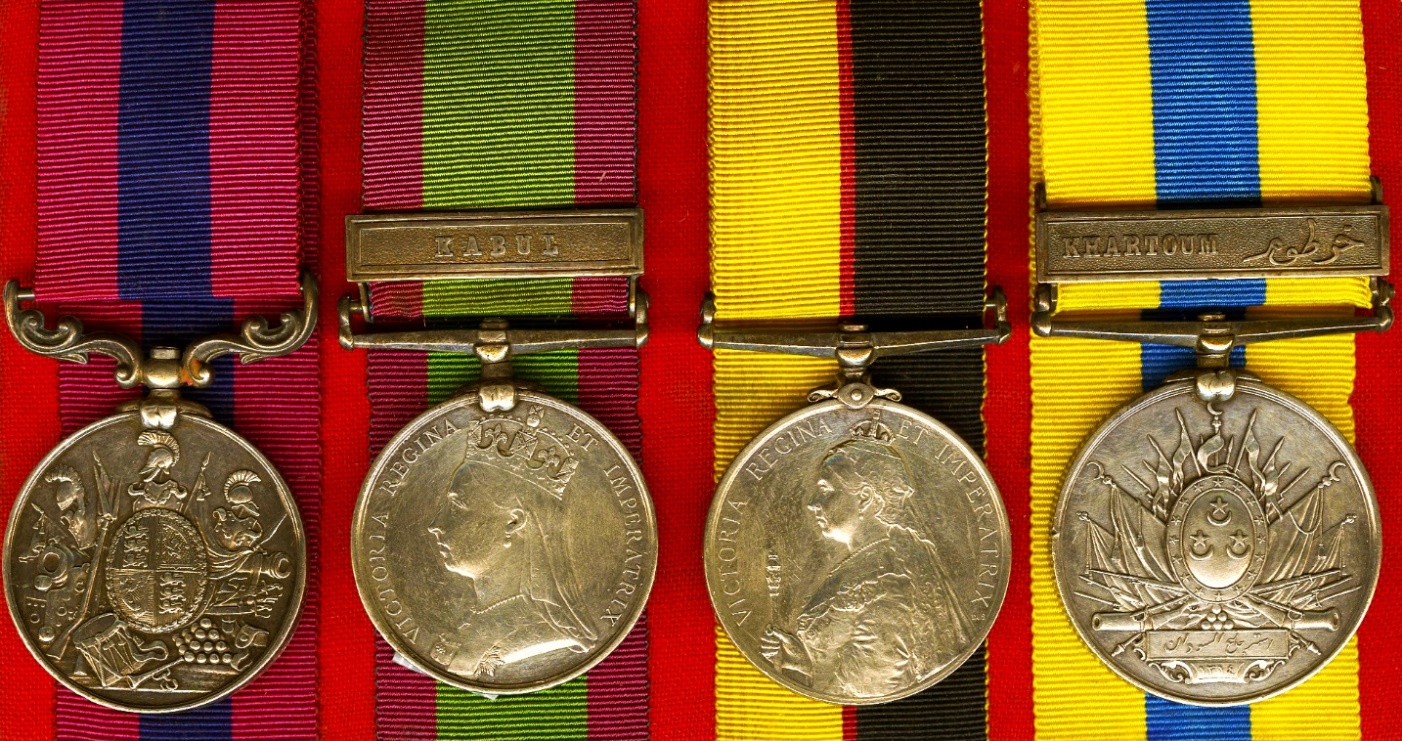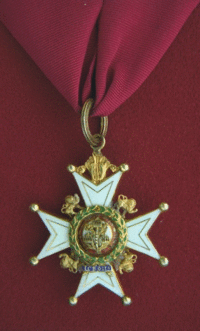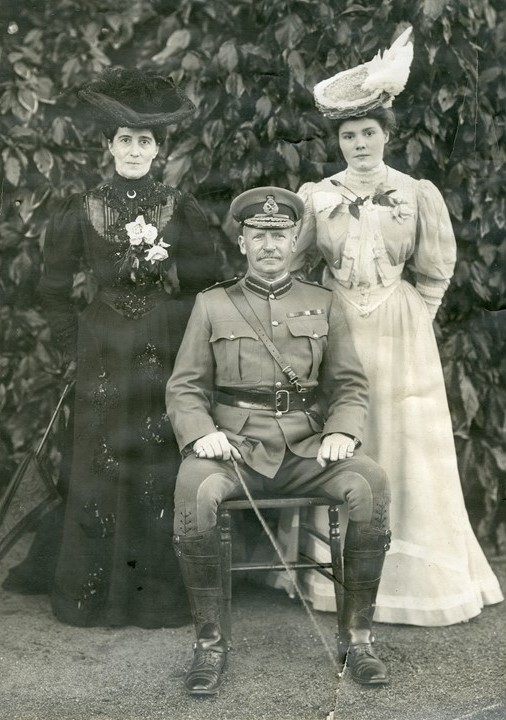This month we are featuring the medals of Major General Henry (Harry) Finn, CB, DCM.

Medals from left to right: Distinguished Conduct Medal, Afghanistan Medal 1878-80 with clasp ‘KABUL’, Queen’s Sudan Medal 1896-98, Khedive’s Sudan Medal 1897 with clasp ‘KHARTOUM’.
Military Medals
- Distinguished Conduct Medal
- Afghanistan Medal 1878-80 with clasp ‘KABUL’
- Queen’s Sudan Medal 1896-98
- Khedive’s Sudan Medal 1897 with clasp ‘KHARTOUM’
Honours

Early Life
Harry Finn was born on 6 December 1852 in Kent, England. His father was a tailor and Harry was educated at home. He enlisted as a soldier into the British Army in 1871, joining the 9th Queen's Royal Lancers.
Military Career
During the Afghanistan War of 1878-80, Harry participated in severe fighting and was awarded the Distinguished Conduct Medal for bravery, as well as being mentioned in dispatches.
Harry was commissioned in 1881 and posted to the 21st Lancers, where he remained until 1890. After completing a number of staff appointments in India and Burma, he returned to the 21st Lancers as a Major. In 1886, Harry married Catherine Scott in Dublin, Ireland.
In 1898 the regiment moved to Egypt to take part in the Nile Expedition to the Sudan, during which Major Finn commanded the Lancers' left wing during their famous charge at Omdurman on 2 September 1899, when he was once again mentioned in dispatches. Harry was awarded the Queen’s Sudan Medal and the Khedive’s Sudan Medal. Shortly afterwards, he was promoted to Lieutenant Colonel, and in the following year moved with the regiment to Ireland.
In 1900, Harry was promoted to Colonel and and appointed as the Commandant of the Queensland Defence Force. During this appointment, his principal role was to prepare military units from Queensland for service for the Boer War.
In 1902, he became the Commandant in New South Wales with the rank of Brigadier General.
In 1904, Finn was promoted to Major General to and appointed Inspector General, the Commonwealth's new military post.

Harry Finn in a family photograph
Post Discharge
Major General Finn retired from the Army in December 1906 and went on to hold several senior secretary positions within the New South Wales Government. He was appointed Companion of the Order of the Bath in 1907.
Harry Finn died in St Luke's Private Hospital, Sydney on 24 June 1924. He was survived by his wife Catherine, two daughters and a son. Harry was buried with full military honours in South Head cemetery. The funeral cortege was so large that it took two and a half hours for the last mourners to arrive at the cemetery following the service at his Point Piper home.
Described in the Senate in 1906 as '...the ablest military man in the Commonwealth', Harry Finn was prominent among the small group of officers who did much to lay the foundations upon which the reputation of the Australian Imperial Force was built.









